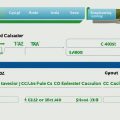According to HMRC, a staggering 2.3 million people in the UK are still waiting for their tax refunds, some for over 4 months. If your tax calculation letter (P800) says you’re due a refund, you can claim it online through your Government Gateway account or the HMRC app. If you claim online, you’ll receive the refund within 5 working days once your bank has processed the payment. However, if you don’t claim online within 21 days, HMRC will send you a refund cheque, which you’ll receive within 6 weeks of the date on your tax calculation letter.
Understanding Tax Refund Processing Timelines
When it comes to receiving your tax refund, the processing timeline can vary significantly depending on several factors affecting tax refund timing. By understanding these factors and the different tax filing and refund timeline options, you can better plan for and potentially expedite your tax refund.
Factors Affecting Refund Turnaround Times
One of the primary determinants of your tax refund timeline is the method you choose to file your tax return. If you opt to file your tax return online and select a direct deposit for your refund, you can typically expect to receive your money within 5 working days once your bank has processed the payment. However, if you choose to file a paper return and request a cheque refund, the process may take up to 6 weeks from the date on your tax calculation letter.
Filing Method and Processing Speeds
The tax filing and refund timeline can also be influenced by the volume of tax returns being processed at a given time. During peak filing seasons, HMRC may experience a higher influx of returns, which could result in slightly longer processing times, even for online filers. By being aware of these nuances, you can better plan your tax filing and expedite your tax refund by opting for the most efficient options available.
Filing Methods and Refund Timeframes
According to the first source, the tax return processing time and average tax refund turnaround can vary significantly depending on the filing method you choose. If you file your tax return online and opt for a direct deposit, you can expect to receive your refund within 5 working days once your bank has processed the payment. However, if you file a paper return and request a cheque refund, the process may take up to 6 weeks from the date on your tax calculation letter.
1. Online Filing and Direct Deposit
Taxpayers who file their returns electronically and select the direct deposit option can enjoy a much faster when to expect tax refund timeline. By taking advantage of the Government Gateway account or the HMRC app, you can claim your refund online and receive the funds within just 5 working days after your bank has processed the payment.
2. Paper Filing and Cheque Refunds
For those who prefer the traditional paper filing method and request a cheque refund, the process can be considerably slower. According to the first source, if you file a paper return, you may have to wait up to 6 weeks from the date on your tax calculation letter to receive your tax return processing time.
| Filing Method | Refund Timeframe |
|---|---|
| Online Filing with Direct Deposit | 5 working days after bank processing |
| Paper Filing with Cheque Refund | Up to 6 weeks from tax calculation letter date |
By understanding the differences in average tax refund turnaround between online and paper filing, taxpayers can make informed choices to ensure they receive their when to expect tax refund as quickly as possible.

Missed Deadlines and Processing Delays
The second source indicates that there can be significant delays in processing tax return status, even when the deadlines have been met. In one case, the taxpayer had submitted their tax return on 14th April and it went “Pending” on 18th April, but they had not received any communication or payment for nearly 4 months. This delay was causing the taxpayer significant financial worry and they were considering contacting their Member of Parliament to raise the issue.
The direct deposit refund timing and paper check refund timing for this particular taxpayer were not as expected, leading to a frustrating and uncertain situation. Despite having filed their tax return well ahead of the deadline, the lack of progress and communication from HMRC was causing the taxpayer considerable stress and concern about the status of their refund.
| Tax Return Submission Date | Tax Return Status | Time Elapsed | Refund Received |
|---|---|---|---|
| 14th April | Pending | Nearly 4 months | No |
The delayed tax return status and lack of updates from HMRC were leaving the taxpayer in a state of financial uncertainty, unable to plan or make use of the anticipated refund. This case highlights the importance of efficient and transparent tax refund processing, particularly for taxpayers who rely on timely refunds to manage their financial obligations.
How Long Does Tax Refund Take?
When it comes to tax refunds, the processing time can vary significantly depending on the filing method you choose. According to the first source, if you file your tax return online and claim your refund through your Government Gateway account or the HMRC app, you can expect to receive the money within 5 working days once your bank has processed the payment. This is a relatively fast turnaround time and can help address any refund delays you may have experienced in the past.
1. Average Wait Times for Online Returns
For taxpayers who file their returns online, the average wait time for a tax refund is typically around 5 working days once the payment has been processed by your bank. This expedited timeline can be particularly beneficial for those who need their refund quickly to address any financial delays or obligations.
2. Average Wait Times for Paper Returns
On the other hand, if you file a paper return and request a cheque refund, the process may take up to 6 weeks from the date on your tax calculation letter. This longer processing time is due to the additional steps involved in handling physical paperwork and issuing cheque payments. Taxpayers who opt for this method may experience more reasons for delayed refunds and may want to consider faster tax refund options in the future.
Checking the Status of Your Refund
If you’ve claimed your tax refund online, you can easily track the progress of your payment through the HMRC’s online services. The first source explains that you can use your Government Gateway account or the HMRC app to check the status of your tax refund. These digital tools provide a convenient way to track your refund status and stay informed about the processing timeline.
1. HMRC Online Services for Tracking Refunds
The HMRC’s online services, accessible through your Government Gateway account and the HMRC app, offer a user-friendly platform to check the status of your tax refund. By logging into these digital channels, you can monitor the progress of your refund claim and stay updated on the anticipated payment date. This allows you to plan your finances and stay informed about the status of your tax refund.
2. Contacting HMRC for Refund Updates
If you prefer personal assistance or have additional questions about the status of your tax refund, you can also contact HMRC directly. Their customer service representatives can provide you with the latest information on the processing of your refund claim and address any concerns you may have. By utilizing both the online services and direct communication with HMRC, you can ensure that you have a comprehensive understanding of the tax refund status and the expected timeline for receiving your funds.

Interest on Late Refunds
As the second source indicates, the delayed tax refund was causing significant financial concerns for the taxpayer. The taxpayer questioned whether HMRC, the UK’s tax authority, would provide any compensation or interest payments to account for the missed investment opportunities and potential personal financial setbacks resulting from the delayed refund.
Eligibility for Interest Payments
HMRC has policies in place to provide interest on tax refunds that are significantly delayed beyond the expected processing timeframes. Taxpayers may be eligible for interest payments if their refund is not issued within a reasonable period, typically 45 days for online filed returns and 60 days for paper filed returns.
Calculating Interest on Delayed Refunds
The interest rate paid on late tax refunds is set by HMRC and is reviewed periodically. The current interest rate on delayed refunds is 2.5% per annum. This interest is calculated from the date the refund was due to be issued until the date it is ultimately paid to the taxpayer. Taxpayers can claim this interest by contacting HMRC and providing the relevant details of their delayed refund.
| Refund Filing Method | Expected Refund Processing Time | Eligibility for Interest Payments |
|---|---|---|
| Online Filing with Direct Deposit | 5 working days | After 45 days |
| Paper Filing with Cheque Refund | Up to 6 weeks | After 60 days |
By understanding the tax refund schedule and the procedures for claiming interest on delayed refunds, taxpayers can ensure they receive the full amount they are owed, including any applicable compensation for the missed opportunities resulting from the late payment.
Transferring Refunds to Instalment Accounts
While the sources provided do not contain any information about the ability to transfer tax refunds to instalment accounts, this option can be a valuable tool for taxpayers who are looking to manage their finances more effectively. Tax refund transfers and instalment account refunds can help individuals allocate their refund money towards specific financial goals, such as paying down debt or saving for the future.
By transferring the refund amount to an instalment account, taxpayers can distribute the funds in a structured manner, making it easier to prioritise and track their financial obligations. This approach can be particularly beneficial for those who may have difficulty managing lump-sum payments or who need to ensure that the refund is used for its intended purpose, such as making timely tax payments or covering essential expenses.
To take advantage of this option, taxpayers should contact their financial institutions or tax advisors to explore the available instalment account refund options and the potential benefits they may offer. By considering this alternative, individuals can maximise the impact of their tax refund and align it with their overall financial objectives.
| Refund Transfer Options | Advantages |
|---|---|
| Tax refund transfers | – Ability to allocate refund towards specific financial goals – Structured distribution of funds for better management – Ensures timely payment of tax obligations |
| Instalment account refunds | – Facilitates gradual disbursement of refund – Supports long-term financial planning and savings – Minimises risk of impulse spending or mismanagement |

Dealing with Refund Discrepancies
When it comes to tax refund disputes, British taxpayers may encounter situations where the refund amount they receive differs from the amount they were expecting. This can be a frustrating experience, as the taxpayer may feel that the refund they are entitled to has been miscalculated or incorrectly processed. In such cases, it is important to understand the options available for disputing the refund amount and appealing the decision.
1. Disputing Refund Amounts
If a taxpayer believes that the tax refund they have received is lower than the amount they are owed, they have the right to dispute the refund amount. This can be done by contacting Her Majesty’s Revenue and Customs (HMRC) and providing evidence to support their claim. Taxpayers should be prepared to explain the discrepancy and offer any relevant documentation that could help resolve the issue.
2. Appealing Refund Decisions
In the event that a taxpayer’s dispute is not resolved to their satisfaction, they may have the option to appeal the refund decision. This process typically involves submitting a formal appeal to HMRC, outlining the reasons why they believe the refund amount is incorrect and providing additional evidence to support their case. Taxpayers should be aware of the deadlines and procedures for filing an appeal, as these can vary depending on the specific circumstances.

Navigating the process of disputing or appealing tax refund decisions can be complex, and taxpayers may benefit from seeking professional advice or assistance from a tax specialist. By understanding their rights and the available options, British taxpayers can help ensure that they receive the full refund amount they are entitled to, even in the face of discrepancies or disputes.
Preparing for Next Year’s Tax Season
As the current tax season winds down, it’s important to start preparing for the next one. By reviewing your tax code and deductions and ensuring timely filing and payment, you can help streamline the process and potentially avoid the delays and discrepancies that many taxpayers have experienced with their refunds.
Reviewing Tax Code and Deductions
Take the time to thoroughly review your tax code and deductions to ensure you are claiming all the allowances and reliefs you are entitled to. This can help maximise your tax refund and minimise the likelihood of errors or discrepancies in the future. Familiarise yourself with the latest tax code and deduction guidelines to ensure you are up to date.
Timely Filing and Payment
Submitting your tax return and making any necessary payments on time is crucial for a smooth tax refund process. Preparing for tax season by organising your paperwork and financial records early can help you meet deadlines and avoid the stress and potential delays that come with last-minute filing. By timely filing and payment, you can ensure your refund is processed efficiently and without unnecessary complications.
Conclusion
The information provided in this article offers a comprehensive overview of the tax refund process in the UK, shedding light on the timelines, methods, and potential issues that taxpayers may encounter. The key takeaways include the varying processing times for online and paper-filed returns, the factors that can cause delays, and the importance of tracking the status of your refund through HMRC’s online services.
While the majority of taxpayers can expect to receive their refunds within a reasonable timeframe, the sources highlight that discrepancies and processing delays can occur, leading to financial worries and missed opportunities. By understanding the nuances of the refund process and the available resources for monitoring its progress, taxpayers can better prepare for and navigate the complexities of the tax system.
In summary, this article has provided a detailed exploration of the tax refund landscape in the UK, equipping readers with the knowledge to manage their expectations, address any issues that may arise, and ultimately ensure a smoother and more efficient refund experience going forward.
FAQ
1. How long does it take to get a tax refund in the UK?
According to the information, the processing time for your tax refund can vary depending on several factors. If you file your tax return online and opt for a direct deposit, you can expect to receive your refund within 5 working days once your bank has processed the payment. However, if you file a paper return and request a cheque refund, the process may take up to 6 weeks from the date on your tax calculation letter.
2. What factors affect the timing of my tax refund?
The key factors that can affect the timing of your tax refund include your filing method (online vs. paper), your chosen payment method (direct deposit vs. cheque), and the volume of tax returns being processed by HMRC. These factors can lead to significant delays, even when the deadlines have been met.
3. What are the processing times for different filing and payment methods?
If you file your tax return online and claim your refund through your Government Gateway account or the HMRC app, you can expect to receive the money within 5 working days once your bank has processed the payment. However, if you file a paper return and request a cheque refund, the process may take up to 6 weeks from the date on your tax calculation letter.
4. What can cause delays in receiving my tax refund?
According to the information, there can be significant delays in processing tax refunds, even when the deadlines have been met. Factors such as large volumes of tax returns and extended processing times can lead to delays, causing financial worry for taxpayers.
5. How can I check the status of my tax refund?
You can use your Government Gateway account or the HMRC app to check the status of your tax refund. If you’ve claimed your refund online, you can track the progress of your payment through these online services.




















No Comments
Leave a comment Cancel